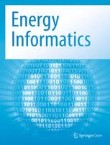Citation Impact 2023
Source Normalized Impact per Paper (SNIP): 0.761
SCImago Journal Rank (SJR): 0.568
Speed 2023
Submission to first editorial decision (median days): 10
Submission to acceptance (median days): 52
Usage 2023
Downloads: 394,833
Altmetric mentions: 17
A review of building digital twins to improve energy efficiency in the building operational stage
The majority of Europe’s building stock consists of facilities built before 2001, presenting a substantial opportunity for energy efficiency improvements during their operation and maintenance phase. Digitaliz...

